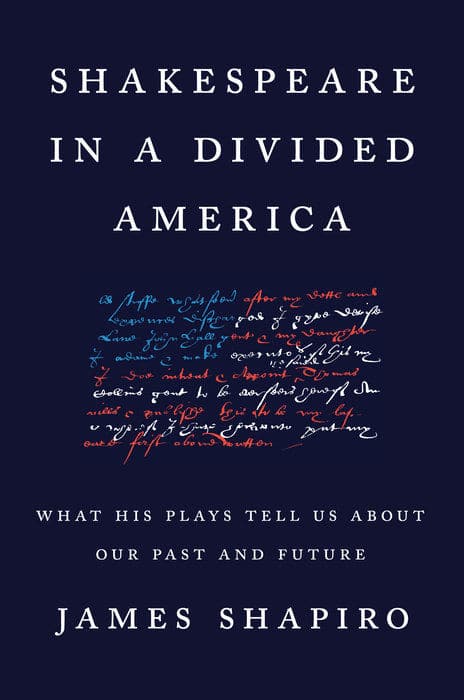“Shakespeare in a Divided America,” Penguin Press, by James Shapiro
America: land of the free, home of the brave, known for Route 66, Silicon Valley … and Shakespeare? Yes, and from colonial days onward. Back then, the Bard wasn’t even considered high culture – his plays were as familiar to ordinary folks as the King James Bible.
In his new book, “Shakespeare in a Divided America,” James Shapiro makes the case that arguments about the Bard’s plays have long reflected our conflicted beliefs as a nation about hot-button issues like immigration, adultery, homosexuality and interracial love.
“His writing continues to function as a canary in a coal mine, alerting us to, among other things, the toxic prejudices poisoning our cultural climate,” writes Shapiro, a Columbia University professor whose earlier works include an anthology on Shakespeare in America with a foreword by Bill Clinton.
To explore this novel intersection of social and literary history, Shapiro selected eight particular years to examine which plays were popular, what people were saying about them and how they were staged.
For instance, John Quincy Adams couldn’t stop obsessing about “Othello” – and in particular, the Moor of Venice’s marriage to the white Desdemona. In an 1835 letter to a friend, Adams, then a member of Congress after serving one term as president, condemned her passion as “unnatural.” That same month he wrote an essay arguing that when Othello smothers her, any pity we might feel for her must give way to the grim recognition that she got what she deserved for being physically intimate with a black man.
Given his reputation as a staunch abolitionist, Adams’ reaction seems weird. Unless, as Shapiro contends, he was working out his own ambivalent feelings about what it would mean for former slaves to be truly equal to whites in U.S. society. “By directing his hostility at Desdemona rather than Othello, he was able to sidestep criticizing black men.”
No discussion of Shakespeare as a “canary in a coal mine” would be complete without mentioning the 2017 production of “Julius Caesar” in New York City’s Central Park, which was disrupted by Trump supporters upset at the parallels drawn between the U.S. president-elect and the Roman tyrant who is assassinated.
Shapiro, who serves as a consultant for the Public Theater, which stages the free Shakespeare in the Park festival every summer, is uniquely qualified to give readers a behind-the-scenes look at what happened. It’s a fascinating story – one of many in this entertaining and accessible book – that underscores Shapiro’s key point: Shakespeare never goes out of style.
___
Follow me on Twitter:






